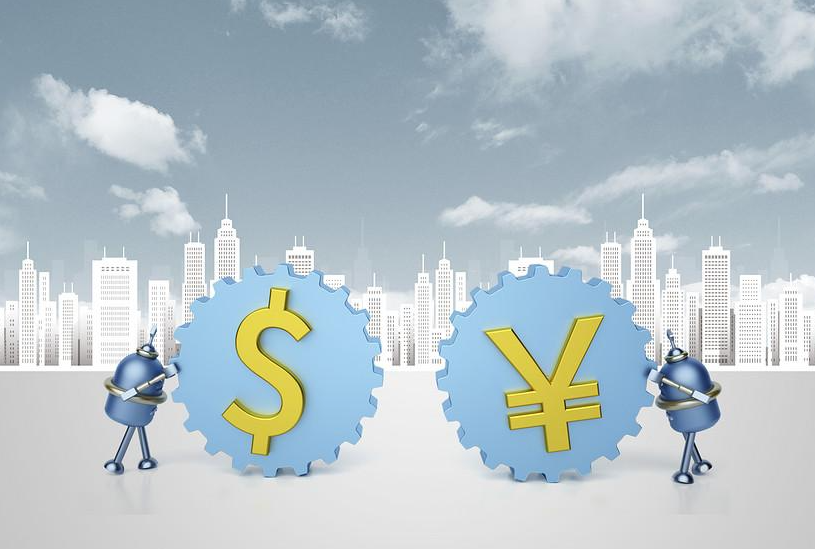In a recent development that brings a glimmer of hope to South Africa, the renowned international credit rating agency Standard & Poor's has upgraded the country's economic outlook from "stable" to "positive." This change signifies an increase in the projected average economic growth for South Africa from 1.0% for the year 2024 to 1.4% for the years 2025 to 2027. This upgrade reflects a more optimistic view of South Africa's economic trajectory, attributing the change to several contributory factors, including a declining inflation rate, improving electricity supply, and reforms in pension systems that may stimulate growth in household spending.
Standard & Poor's emphasized that with this improved rating, South Africa is experiencing a bolstered political stability alongside robust reform momentum, which is pivotal for enhancing private investment and overall economic growth. The report offers a positive picture, noting improvements in bond yields and investment inflows contributing to more favorable financing conditions and a stronger currency. The recent Medium-Term Budget Policy Statement (MTBPS) released by the South African government indicates progress towards achieving a primary surplus and consolidating fiscal policies, which have raised predictability within the country’s economic framework. Should the government manage to implement more effective reforms that stimulate economic growth while simultaneously curbing public debt, there is potential for an even higher economic outlook rating.

Following the upgrade, the South African National Treasury welcomed the decision, highlighting its commitment to an economic growth strategy focused on four critical areas: maintaining macroeconomic stability, implementing structural reforms, enhancing national capacity, and investing in public infrastructure to support inclusive economic growth and fiscal sustainability.
Economic analysts are increasingly optimistic that many current indicators show a recovery trend within South Africa's economy. A report released by the South African Statistics Authority revealed a slight improvement in the unemployment rate for the third quarter of 2024, which now sits at 32.1%, down 1.4 percentage points from the previous quarter. The number of employed people increased by 294,000 to reach 16.9 million, while the number of unemployed individuals decreased by 373,000 to 8 million. Furthermore, the broader definition of unemployment stands at 41.9%, marking a 0.7 percentage point decrease compared to the previous quarter, and youth unemployment has also eased to 45.5%.
Adding to this positive narrative, various confidence indices have shown improvements for the third consecutive quarter. These indices, spanning the wholesale, retail, construction, and manufacturing sectors, exhibit varying degrees of growth, suggesting renewed optimism among businesses. Moreover, the long-standing issue of load-shedding, which has fraught South Africa's economic landscape, has seen some relief recently. Thanks to the country's well-established financial system, South Africa has a robust foundation to support its economic growth initiatives.
Another factor contributing to the easing inflation pressure is the proactive monetary policy employed by the South African Reserve Bank (SARB), which has successfully curbed the rising costs of consumer goods and maintained inflation within targeted ranges. These economic signals suggest a potential turnaround, but Standard & Poor's also highlighted several underlying concerns that could undermine this newfound optimism. These include the complexities of South Africa's international relations, characterized by geopolitical tensions such as the ongoing conflicts between Israel and Palestine, as well as between Russia and Ukraine, and their possible impacts on global trade dynamics.
The agency issued a caution that if South Africa encounters obstacles in reform implementation, experiences weaker-than-expected economic growth, or sees deteriorating infrastructure conditions, its economic outlook rating could revert to "stable" or worse. Concerns regarding the rising public debt level persist and the country's economic activities are still constrained by logistical bottlenecks, which raises alarm bells among observers.
Looking at the macroeconomic level, experts indicate that South Africa’s economy is under threat from various potential challenges. Internationally, the rising geopolitical uncertainty, along with frequent conflicts and intensified economic competition among major powers, poses a significant risk to South Africa, a nation highly dependent on trade growth.
Almost 60% of South Africa’s GDP is linked to imports and exports, making the economy particularly vulnerable to fluctuations in international political and economic landscapes. The unclear economic and trade investment policies from the recently inaugurated U.S. government regarding Africa and South Africa add to this uncertainty, with the South African rand facing depreciation against the dollar. Consequently, many in the South African business community are adopting a wait-and-see attitude regarding future U.S.-South Africa trade relations.
Domestically, the efficacy and prospects of the economic agenda and policy measures instituted by the new government, termed the Unity Government, remain under scrutiny due to persistent issues plaguing South Africa's socio-economic development. Unacceptably high unemployment rates, unstable energy supplies, outdated infrastructure, inefficient public services, significant public debt, and elevated crime rates continue to strain the society and economy. Furthermore, the widening gap between the rich and the poor, coupled with pressures of poverty alleviation, adds to the complexity of the situation.
In addressing the needs for improved living standards and social security, the South African government faces mounting pressure and challenges. Additionally, a prevalent issue is the informal employment of undocumented migrants which threatens job opportunities for South African citizens. These multifaceted problems have led to widespread dissatisfaction, prompting the government to implement corrective measures, which have begun to yield some positive results.
In conclusion, while the recent upgrade in South Africa's economic outlook fosters a sense of optimism about the future, significant barriers still remain. The interplay of domestic reforms, international relations, and the global economic landscape will be crucial in determining whether the current momentum can be sustained, thereby ensuring a resilient economic future for South Africa.